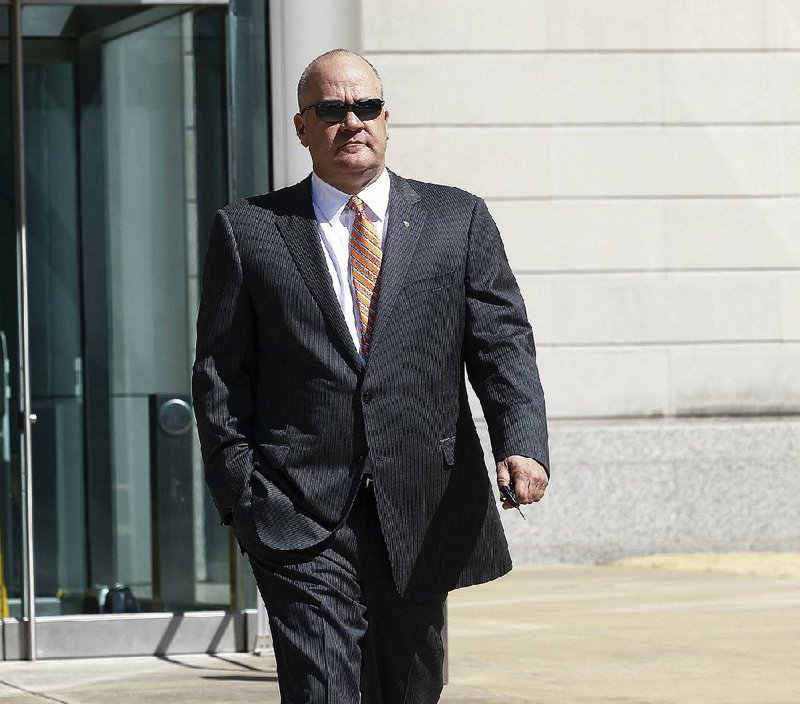Arkansas saw a cash flow of more than $6.5 million from a series of bond transactions that were the focus of a Legislative audit, a Russellville accountant testified Tuesday at a state hearing against former bond trader Steele Stephens.
The Legislative Audit Division conducted an investigative audit in 2012 into the office of Martha Shoffner, the state treasurer who was convicted last year of extortion and bribery in connection with six payments of $6,000 each from Stephens in exchange for a share of the state's bond business.
Cash flow is the difference in cash available at the beginning of a period and that available at the end of the period.
Bruce Garrett, a certified public accountant, analyzed seven transactions involving bonds handled for the treasurer's office by Stephens and Stephens' employer until 2013, St. Bernard Financial Services of Russellville.
The Arkansas Securities Department has accused Stephens of selling unsuitable securities to the treasurer's office. The department has the authority to fine an agent such as Stephens up to $10,000 for each violation of the state securities law.
The trades were made while Shoffner was the treasurer.
Stephens, who was given immunity from criminal prosecution, testified against Shoffner in her federal case. Stephens, who is not affiliated with Little Rock investment firm Stephens Inc., testified in Shoffner's trial last year that he earned about $2.5 million in commissions from about 85 bond trades with the state.
Of Stephens' 85 bond transactions with the state from 2010 to 2012, seven deals involved the sale of bonds before they were scheduled to be called by the issuer.
On the seven transactions that Garrett studied, the state had a range of cash flow gains of $175,800 on a $9.4 million bond purchased in 2011 to $4.2 million in cash flow on a $25 million bond first bought in 2008, Garrett testified.
Arkansas lost no money on the bond deals Garrett analyzed, he said.
Garrett's testimony contrasted with statements from Craig McCann, a former university professor and owner of a securities consulting firm, who testified Monday. McCann said estimates that the state profited on the trading of the seven bonds failed to take into consideration how much was lost from future bond interest payments.
But Robert Keenan, chief executive officer of St. Bernard, said McCann made several errors in his calculations, even some basic mathematical mistakes.
"There were quite a few errors [in McCann's testimony]," said Keenan, who serves on the national board of the Financial Industry Regulatory Authority. "I thought it was quite shocking for man of Dr. McCann's background. [Some of the mistakes] go to show that he is not paying attention to detail."
St. Bernard was investigated by both the Securities and Exchange Commission and the Financial Industry Regulatory Authority, which regulates investment firms, and neither found irregularities with the firm's bond trades with the state, Keenan said. There was no disciplinary action taken by either group against St. Bernard, Keenan said.
Two supervisors of other Little Rock bond firms were called to testify Tuesday to show that the trades made by Stephens were suitable for the state, said John Van Kleef, Stephens' attorney. The supervisors testified that their firms made similar bond trades with the state and made money on those trades, although some profits were made from underwriting fees.
Business on 04/08/2015
